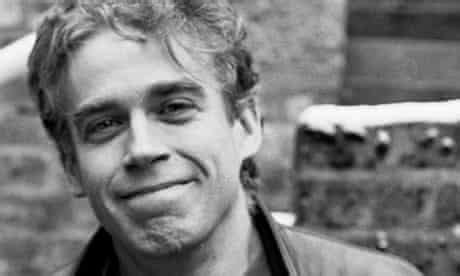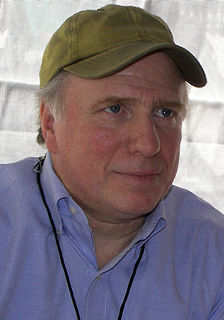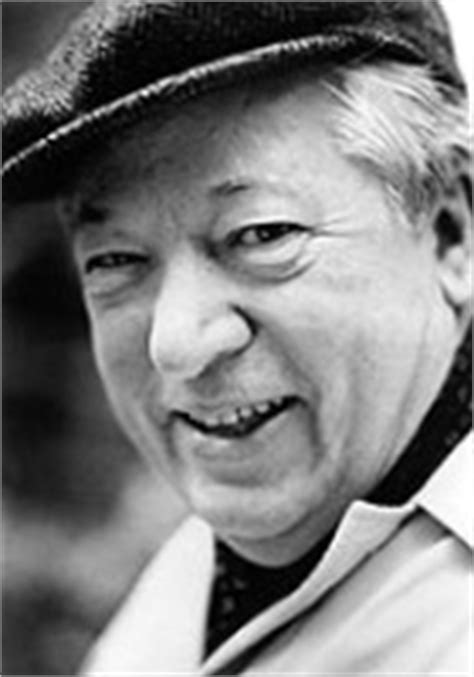A Quote by Michael Donaghy
The first thing that strikes you about Timothy Murphys verse is the palpable texture of his line - that sound of sense practised by that other American poet-farmer, Robert Frost. And just as Murphys ear is trained on the rhythms of local speech and classical epigram, his eye holds fast on the image. This is an undeluded vision, sometimes bleak, often funny, and never less than painstakingly crafted.
Related Quotes
I was a poet too; but modern taste
Is so refined and delicate and chaste,
That verse, whatever fire the fancy warms,
Without a creamy smoothness has no charms.
Thus, all success depending on an ear,
And thinking I might purchase it too dear,
If sentiment were sacrific'd to sound,
And truth cut short to make a period round,
I judg'd a man of sense could scarce do worse
Than caper in the morris-dance of verse.
Another editor. That thing behind his ear is his pencil. Whenever he finds a bright thing in your manuscript he strikes it out with that. That does him good, and makes him smile and show his teeth, the way he is doing in the picture. This one has just been striking out a smart thing, and now he is sitting there with his thumbs in his vest-holes, gloating. They are full of envy and malice, editors are.
Not only does the modern person often think that sight is more important than sound - there's no objective evidence to indicate that. Many people, even audiologists who study the science of human speech and hearing, have assumed for a long time that the human ear evolved to hear the human voice, rather than the voice changing to fit the human ear. And the human ear is actually not a perfect match if we map its sensitivity to the different frequencies in the human range of hearing; it's an unequal curve, it's kind of a wavy line.
Extemporaneous speaking should be practised [sic] and cultivated. It is the lawyer's avenue to the public. However able and faithful he may be in other respects, people are slow to bring him business if he cannot make a speech. And yet there is not a more fatal error to young lawyers than relying too much on speech-making. If any one, upon his rare powers of speaking, shall claim an exemption from the drudgery of the law, his case is a failure in advance.
For [Louis] Brandeis, you know, ethnicity and background are much less important than facts and reason. And he believes that far from wanting to efface our diversity of perspectives, we have to embrace it because that makes us more American, not less. In that sense, he's incredibly modern in an age of cultural pluralism. And it is disappointing for just the reasons you say that not everyone has embraced his pluralistic vision.
There is something about the vocal quality of the actors who can really do it. Jim Burrows, the great sitcom director who directed Will & Grace and Cheers, when an actor comes in to audition for him, he never looks at them. He just listens. Because funny is funny. You can be fooled by the eye, but if your performance is funny to the ear, it will be funny.
I cross my arms. "It was a two minute conversation." "I don't think a smaller time frame makes it less unwise." He furrows his eyebrows and touches the corner of my bruised eye with his fingertips. My head jerks back, but he doesn't take his hand away. Instead he sighs. "You know, if you could just learn to attack first, you might do better." "Attack first?" I say. "How will that help?" "You're fast. If you can get a few good hits in before they know what's going on, you could win." He shrugs, and his hand falls.







































